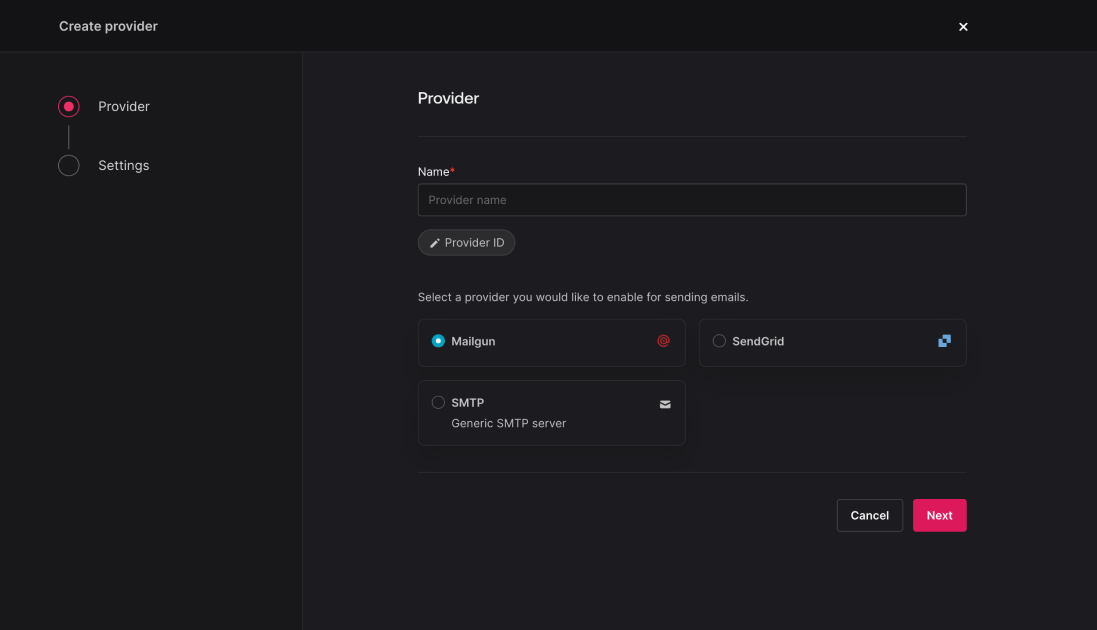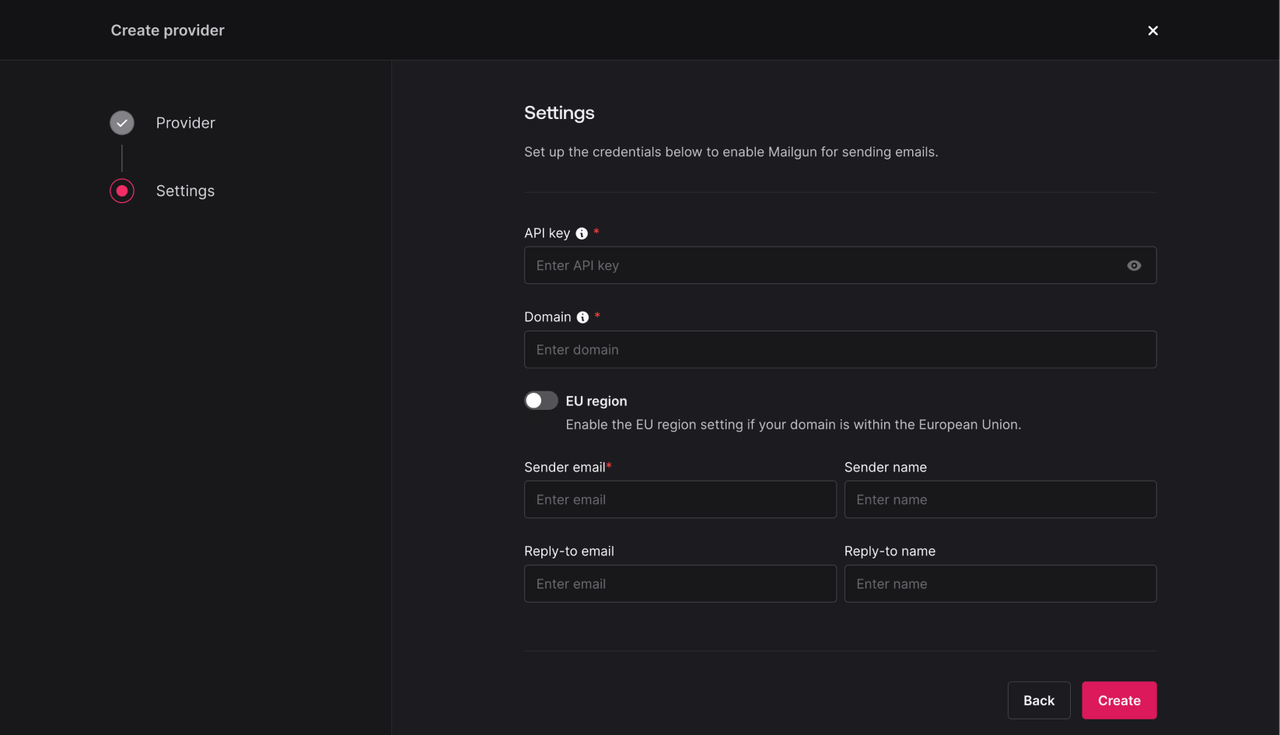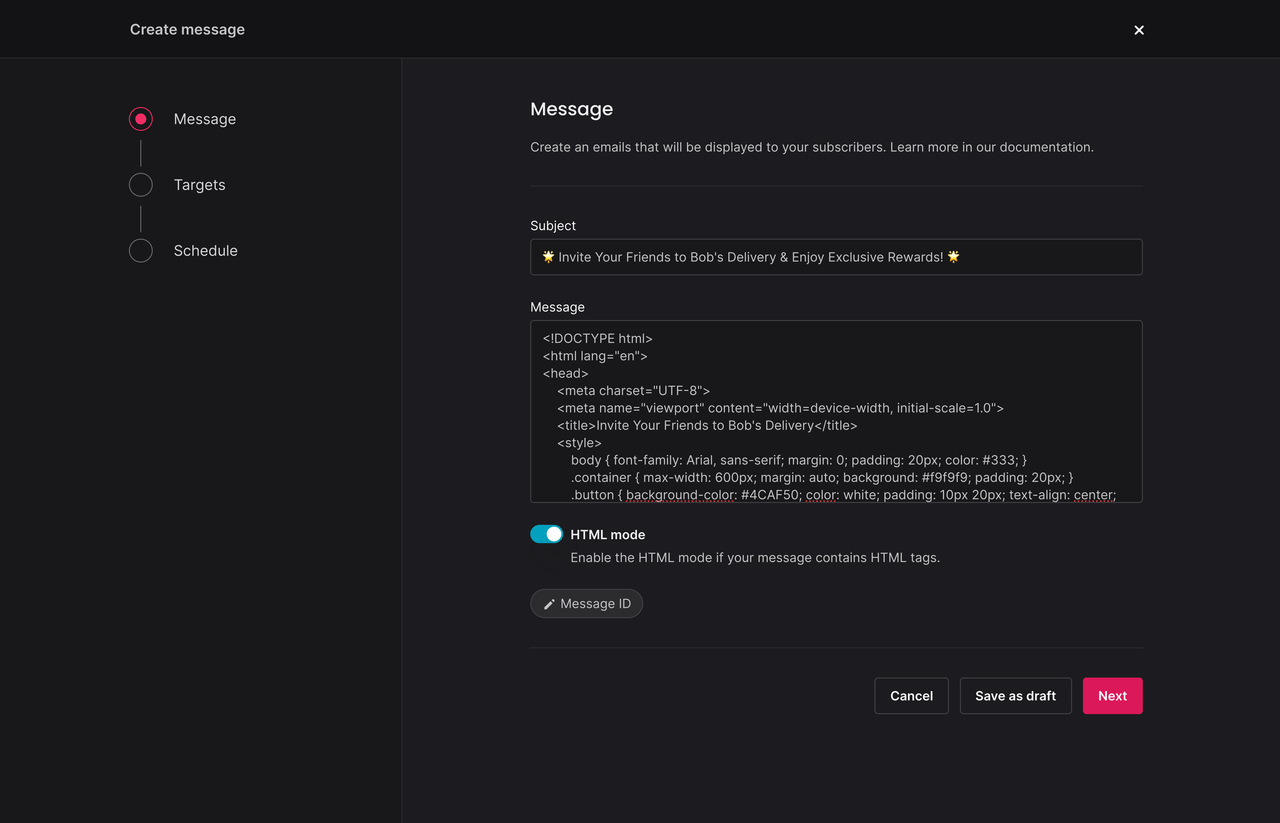Mailgun lets you send customized email messages to your users. These emails can be sent immediately or scheduled. You can send emails for purposes like reminders, promotions, announcements, and even custom authentication flows.
To add Mailgun as a provider, navigate to Messaging > Providers > Add provider > Email.


Give your provider a name > choose Mailgun > click Save and continue. The provider will be saved to your project, but not enabled until you complete its configuration.
In the Configure step, you will need to provide details from your Mailgun dashboard to connect your Appwrite project.


You will need to provide the following information from your Mailgun dashboard.
| Field name | |
API key | Head to Profile -> API Security -> Add new key. |
Domain | Head to Sending -> Domains -> Add new domain. Follow Mailgun's instructions to verify the domain name. |
EU region | Enable the EU region setting if your domain is within the European Union. |
Sender email | The provider sends emails from this sender email. The sender email needs to be an email under the configured domain. |
Sender name | The sender name that appears in the emails sent from this provider. |
Reply-to email | The reply-to email that appears in the emails sent from this provider. The reply-to email needs to be an email under the configured domain. |
Reply-to name | The reply-to name that appears in the emails sent from this provider. |
After adding the following details, click Save and continue to enable the provider.
Before sending your first message, make sure you've configured a topic and a target to send messages to.
To send a test message, navigate to Messaging > Messages > Create message > Email.


Add your message and in the targets step, select one of your test targets. Set the schedule to Now and click Send.
Verify that you can receive the message in your inbox. If not, check for logs in the Appwrite Console or in your provider's logs.
To send a message programmatically, use an Appwrite Server SDK.
You can follow the Send email messages journey to send your first push notification and test your provider.
You can update or delete a provider in the Appwrite Console.
Navigate to Messaging > Providers > click your provider. In the settings, you can update a provider's configuration or delete the provider.
To update or delete providers programmatically, use an Appwrite Server SDK.